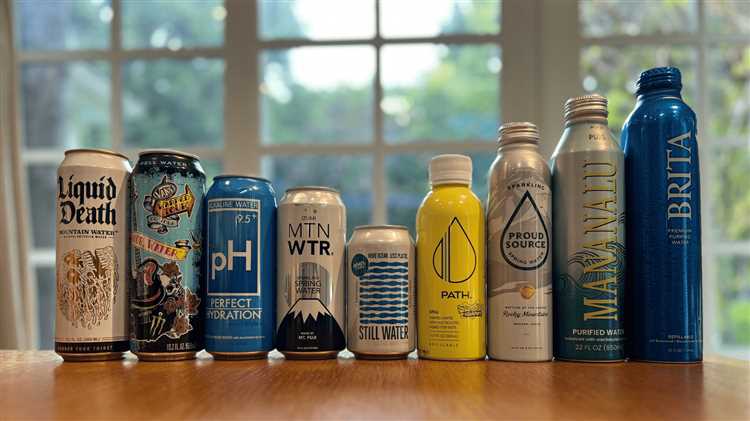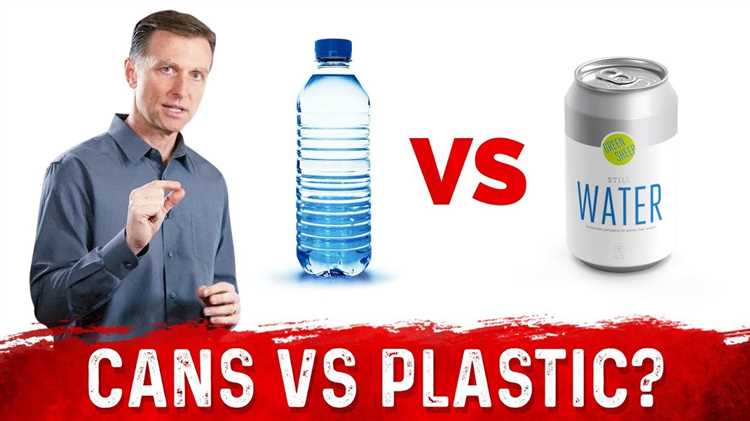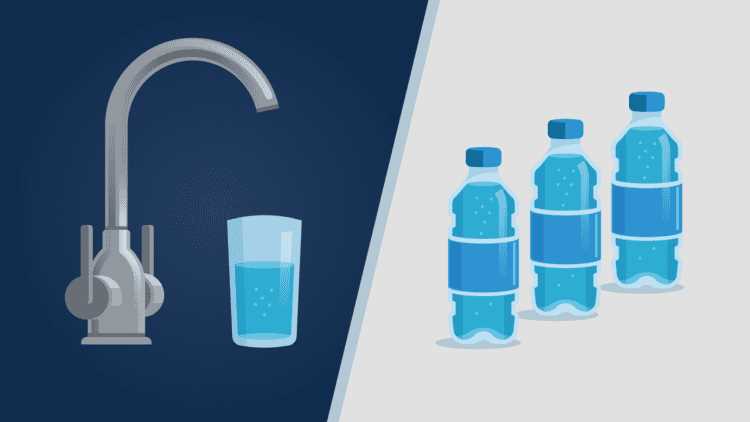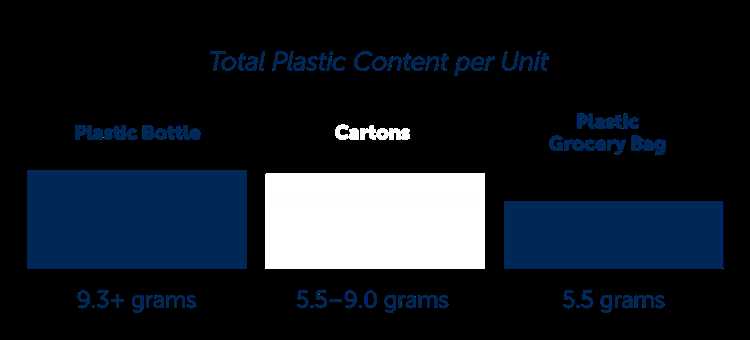
As the world becomes more aware of the detrimental impact of single-use plastics on the environment, alternative solutions are being sought after. One of the most promising alternatives is canned water, which could potentially revolutionize the way we consume and package water.
Canned water offers several advantages over plastic bottles. Firstly, aluminum cans are much easier to recycle compared to plastic. In fact, aluminum is infinitely recyclable, meaning that it can be recycled without any loss in quality. On the other hand, plastic has a much lower recycling rate and a significant portion ends up in landfills or in our oceans, contributing to pollution and harming wildlife.
Furthermore, canned water eliminates the need for single-use plastic bottles altogether. By switching to cans, we can drastically reduce the amount of plastic waste generated. This is especially important considering that only a small percentage of plastic bottles are actually recycled. Canned water offers a more sustainable solution by encouraging proper recycling practices and reducing plastic consumption.
In addition to its environmental benefits, canned water also offers practical advantages. Aluminum cans are lightweight, portable, and easy to stack, making them convenient for transportation and storage. They are also resistant to light and oxygen, providing a better barrier for preserving the quality and taste of the water inside. These features make canned water a viable and attractive option for consumers, while still prioritizing environmental sustainability.
In conclusion, canned water has the potential to be a game-changer in the battle for environmental sustainability. Its recyclability, reduction in plastic waste, and practical advantages make it a compelling alternative to plastic bottles. By choosing canned water over plastic, we can take a step towards a more sustainable future and contribute to the preservation of our planet.
- The Environmental Sustainability Battle: Can Canned Water Defeat Plastic?
- The Problem with Plastic
- The Rise of Canned Water
- The Future of Sustainability
- Canned Water: An Eco-Friendly Alternative
- Reducing Plastic Waste
- Promoting Sustainability
- Consumer Perception and Convenience
- The Environmental Impact of Plastic
- The Benefits of Canned Water
- 1. Environmental Sustainability
- 2. Reduced Carbon Footprint
- 3. Preservation of Water Quality
- Challenges in Replacing Plastic with Canned Water
- The Future of Sustainable Packaging
- Q&A:
- Why is plastic harmful to the environment?
- What is canned water?
- How does canned water help in the battle for environmental sustainability?
- Is canned water more expensive than plastic bottled water?
- What are some challenges in transitioning from plastic to canned water?
- What is the environmental impact of plastic water bottles?
The Environmental Sustainability Battle: Can Canned Water Defeat Plastic?

In the ongoing battle to combat environmental sustainability, one contender has emerged as a potentially powerful weapon: canned water. With the world grappling with the devastating effects of plastic pollution, the idea of using canned water as an alternative is gaining traction.
The Problem with Plastic
Plastic has become a ubiquitous material in our modern world, but its environmental impact is severe. It takes centuries to decompose, and much of it ends up in our oceans, damaging marine life and ecosystems. Plastic pollution has become a global crisis, and urgent action is needed to find viable solutions.
Canned water offers a promising alternative to plastic.
The Rise of Canned Water
Canned water is gaining popularity as a sustainable alternative to single-use plastic bottles. Made from recyclable aluminum, canned water offers a way to minimize plastic waste and reduce carbon emissions. Unlike plastic bottles, aluminum cans are easily recycled and can be back on store shelves within weeks, promoting a circular economy.
Furthermore, canned water eliminates the health risks associated with plastic. Plastic bottles can leach harmful chemicals into the water, posing potential health hazards. Canned water provides a safe and eco-friendly alternative, ensuring the purity of the water without compromising on taste or quality.
Canned water brands are stepping up to the challenge.
The Future of Sustainability
While canned water shows great promise, it is crucial to recognize that no single solution can solve the environmental crisis we face. It will require a collective effort from governments, businesses, and individuals to reduce plastic consumption and promote sustainable alternatives.
However, the rise of canned water offers hope and highlights the growing demand for sustainable options. By choosing canned water over plastic bottles, consumers are actively contributing to environmental conservation and sending a powerful message to industries to prioritize sustainability.
The battle for environmental sustainability is far from over, but in the fight against plastic, canned water may just be one of the weapons needed to secure victory.
Canned Water: An Eco-Friendly Alternative
As the world grapples with the environmental impact of single-use plastic bottles, alternative solutions are being explored to reduce waste and promote sustainability. One such solution is the rise of canned water as an eco-friendly alternative.
Reducing Plastic Waste
Canned water offers a promising alternative to plastic water bottles by eliminating the need for single-use plastics. Plastic bottles are a major contributor to pollution and pose significant challenges for recycling due to their complex composition and low recycling rates. By opting for canned water, consumers can help reduce the amount of plastic waste that ends up in landfills or finds its way into oceans and waterways.
Unlike plastic bottles, aluminum cans are highly recyclable and can be easily converted back into new cans. They have a much higher recycling rate, making them a more sustainable option. In addition, aluminum production requires significantly less energy compared to plastic, further reducing the environmental impact.
Promoting Sustainability
The production of canned water also offers additional sustainability benefits. Aluminum cans have a lighter footprint in terms of carbon emissions compared to plastic bottles. Their lightweight nature means they require less energy for transportation, resulting in reduced greenhouse gas emissions.
Canned water also has a longer shelf life compared to plastic bottles, allowing for more efficient distribution and reducing food waste. The aluminum material provides a protective barrier against light and oxygen, preserving the quality and taste of the water for an extended period.
Consumer Perception and Convenience
Consumers are becoming increasingly conscious of the environmental impact of their choices and are gravitating towards more sustainable alternatives. The use of canned water can help consumers align their values with their consumption habits. The portable and convenient nature of aluminum cans makes them suitable for on-the-go lifestyles, further enhancing their appeal.
In conclusion, canned water presents itself as an eco-friendly alternative to plastic bottles, offering a way to reduce plastic waste, promote sustainability, and align consumer choices with environmental values. As the battle for environmental sustainability continues, considering alternatives like canned water can contribute to a greener future.
The Environmental Impact of Plastic
Plastic has become a pervasive material in our modern society, but its environmental impact is significant and far-reaching. Here are some key considerations to understand the negative effects of plastic:
- Pollution and litter: Plastic waste is a major contributor to pollution, especially in our oceans. It is estimated that over 8 million metric tons of plastic enter the ocean every year, posing a serious threat to marine life and ecosystems.
- Longevity: Unlike organic materials, plastic takes hundreds of years to decompose. This means that every piece of plastic ever produced still exists in some form, whether it is in landfills, waterways, or natural environments.
- Microplastics: Plastic pollution not only includes visible items like bottles and bags, but also microscopic particles known as microplastics. These tiny particles can be found in the air we breathe, the water we drink, and even the food we eat. They pose a threat to human health and the health of wildlife.
- Energy consumption and greenhouse gas emissions: The production of plastic requires fossil fuels, and the process releases greenhouse gases into the atmosphere. Additionally, recycling plastic can be energy-intensive, leading to further energy consumption and emissions.
- Wildlife and ecosystem disruption: Plastic waste can entangle and suffocate wildlife, both on land and in water. Marine animals often mistake plastic for food, leading to ingestion and potential harm. Plastic pollution also disrupts ecosystems and reduces biodiversity.
It is clear that plastic has a significant negative impact on the environment. As consumers and businesses, it is important to find sustainable alternatives to reduce plastic consumption and promote a healthier planet for future generations.
The Benefits of Canned Water

Canned water is gaining popularity as a sustainable alternative to plastic water bottles. Here are some of the benefits of choosing canned water:
1. Environmental Sustainability

One of the main advantages of canned water is its positive impact on the environment. The production of plastic bottles contributes to pollution, greenhouse gas emissions, and the depletion of natural resources. Canned water, on the other hand, is made from recyclable materials and can be easily recycled again.
2. Reduced Carbon Footprint
The production and transportation of plastic water bottles require a significant amount of energy, leading to higher carbon emissions. Canned water has a lower carbon footprint because the manufacturing process uses less energy and emits fewer greenhouse gases.
Additionally, the transportation of canned water is more efficient due to its stackable nature, which allows for more units to be transported at once, reducing the number of trips required and, consequently, carbon emissions.
3. Preservation of Water Quality
Another benefit of canned water is the preservation of water quality. Plastic bottles can degrade over time, releasing harmful chemicals into the water they contain. Canned water eliminates this risk as it provides a protective barrier that prevents any leaching or contamination.
Furthermore, the metal cans used for canned water are resistant to heat and light, which helps preserve the water’s freshness and taste for a longer period.
In conclusion, canned water offers numerous benefits compared to plastic water bottles. It is more environmentally sustainable, has a lower carbon footprint, and helps preserve the quality of the water it contains. By making the switch to canned water, individuals can contribute to a more sustainable future while enjoying the convenience of portable hydration.
Challenges in Replacing Plastic with Canned Water

The use of plastic has become a significant environmental concern, leading to efforts to find more sustainable alternatives. One such alternative is canned water, which offers the advantage of being easily recyclable and having a lower impact on the environment compared to plastic bottles. However, there are several challenges in replacing plastic with canned water that need to be addressed.
Firstly, the production of canned water requires more energy compared to plastic bottles. The process of manufacturing aluminum cans, including mining and refining bauxite, smelting, and shaping, consumes a considerable amount of energy and resources. This increased energy requirement can have indirect environmental consequences, such as increased greenhouse gas emissions.
Secondly, canned water faces challenges in terms of transportation and distribution. Aluminum cans are heavier than plastic bottles, which increases the weight and cost of shipping. This can result in higher carbon emissions from transportation, negating some of the environmental benefits gained from using canned water instead of plastic bottles.
Furthermore, the infrastructure for recycling aluminum cans is not as well-developed as that for plastic bottles. While plastic recycling is more widespread and accessible, aluminum recycling facilities may be limited in some regions. This can lead to lower recycling rates for canned water, potentially increasing its environmental impact compared to plastic bottles that are more readily recyclable.
Additionally, the cost of canned water can be higher than that of plastic bottles. The production and manufacturing processes for aluminum cans, along with their higher transportation costs, contribute to the higher price of canned water. This may deter some consumers from choosing canned water as a more sustainable alternative, especially in regions where plastic bottles are more affordable.
In conclusion, while canned water offers environmental advantages over plastic bottles, it is not without its challenges. The increased energy requirements for production, transportation and distribution, limited recycling infrastructure, and higher costs compared to plastic bottles are all significant hurdles that need to be overcome for canned water to become a viable replacement for plastic in terms of environmental sustainability.
The Future of Sustainable Packaging
As the world becomes more conscious of the impact of plastic on the environment, the demand for sustainable packaging solutions is growing. With the rise of canned water as an alternative to plastic bottles, the future of sustainable packaging looks promising.
Canned water offers several advantages over plastic bottles. Firstly, aluminum cans are highly recyclable, with a recycling rate of over 70%. On the other hand, plastic bottles have a recycling rate of just 30%, and many end up in landfills or the ocean, where they pose a significant threat to marine life.
In addition to being more recyclable, canned water also has a lower carbon footprint compared to plastic bottles. The production of aluminum cans requires less energy and emits fewer greenhouse gases compared to plastic manufacturing. Furthermore, aluminum cans are lightweight, which reduces transportation costs and fuel consumption.
Another potential future for sustainable packaging lies in biodegradable materials. Researchers are currently developing packaging materials made from plant-based polymers, such as cornstarch or sugarcane. These materials are not only biodegradable but also renewable, as they can be grown and harvested sustainably.
Furthermore, innovative packaging designs are being developed to reduce the amount of material used. For example, some companies are exploring the use of edible packaging made from seaweed or other edible materials. These packaging solutions would eliminate the need for plastic altogether, as they can be consumed along with the product.
With increased consumer awareness and demand for sustainable packaging, it is likely that the future will see a shift towards more environmentally friendly alternatives. Whether it’s through the use of aluminum cans, biodegradable materials, or innovative designs, the future of sustainable packaging looks promising. By making conscious choices and supporting these initiatives, we can all contribute to a greener and more sustainable future.
Q&A:
Why is plastic harmful to the environment?
Plastic is harmful to the environment because it is non-biodegradable and takes hundreds of years to decompose. It also contributes to pollution in the form of microplastics and is a major contributor to the problem of plastic waste in oceans and landfills.
What is canned water?
Canned water is water that is packaged in aluminum cans instead of plastic bottles. It is a more sustainable alternative to plastic as aluminum is a highly recyclable material and has a much lower impact on the environment compared to plastic.
How does canned water help in the battle for environmental sustainability?
Canned water helps in the battle for environmental sustainability by reducing the use of plastic bottles. Plastic bottles are a major source of plastic waste and contribute to pollution and environmental degradation. Canned water provides a more sustainable alternative that can be easily recycled and has a lower carbon footprint.
Is canned water more expensive than plastic bottled water?
Canned water can be slightly more expensive than plastic bottled water. This is because the production process for aluminum cans is more costly compared to plastic bottles. However, the price difference is usually not significant and many consumers are willing to pay a slightly higher price for a more sustainable option.
What are some challenges in transitioning from plastic to canned water?
Transitioning from plastic to canned water faces several challenges. One challenge is the existing infrastructure and consumer behavior that is geared towards plastic bottles. It may take time for consumers to accept and adapt to the use of canned water. Additionally, there may be logistical challenges in terms of production and distribution of canned water on a large scale.
What is the environmental impact of plastic water bottles?
The environmental impact of plastic water bottles is quite significant. They contribute to landfills and take hundreds of years to decompose. Additionally, the production and transportation of plastic water bottles require significant amounts of energy and emit harmful greenhouse gases.